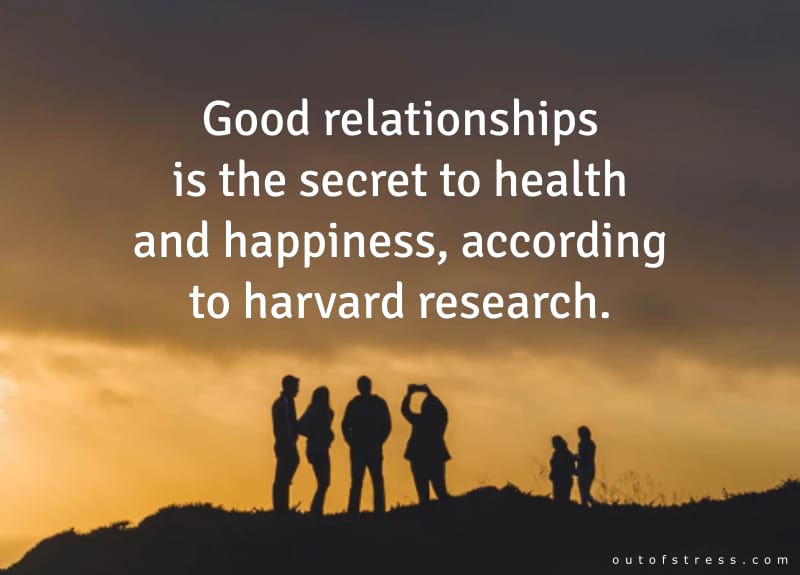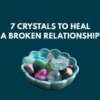
Over the years, a lot of research has been done to figure out the answer to this primordial question – what exactly makes us happy as human beings?
Out of all these studies, the one that stands out rather prominently is the Harvard study of human development.
What sets this study apart is the sheer duration of the study which is over 75 years! For 75 years (and still counting), scientists have tracked the lives of 724 individuals since their very childhood all the way into adulthood, trying to figure out what is that one factor that lead to happiness and well being in their lives.
So what is the secret to happiness according to this study?
Surprisingly, the secret to happiness is not what we are usually made to believe – so it’s not success, money, fame or status that made people happy. What made people happy was the presence of quality, close relationships in their lives.
Note that it’s not the quantity that counts but the quality. So, a person could be in a committed relationship, have a lot of friends and is around family, but none of that would matter if the relationships were of a shallow nature.
Close knitted relationships where a person feels safe and accepted, where he or she can be their own self without having to pretend to fit in. Where a person feels they can depend on the others, where they are valued, where their voices are heard and where there is a genuine heart level and mind level connection is what made people happy.
3 big lessons about relationships according to this study
According to Robert Waldinger, who is the fourth director of the study, “Good relationships keep us healthier and happier.”
Robert gave a Ted talk in which he highlighted three big lessons that the researchers learnt about human relationships and their ability to make us happier.
Here’s the Ted Talk:
These lessons talked about in the Ted talk are as follows:
1.) Social connections are really good for us and loneliness causes ill health
The first lesson that this study found is that people who are socially connected to family, friends and community are happier, healthier and even live longer as opposed to those who are not.
People who felt lonely and isolated, who were desperately seeking a meaningful connection with others were found to be less happy, prone to health issues and lived shorter lives.
Now there is an important point to note here. As already mentioned, it is not the quantity of relationships that matters but the quality. We will discuss more about this in the second point.
2.) It’s not the quantity but the quality of relationships that matters
The second lesson revealed by this study is that it’s not the number of relationships but the quality of those relationships that mattered.
So a person could be socially connected to many others, but it wouldn’t benefit them if the relationships are shallow in nature. It is only the deep, connected relationships that matter. In other words, relationships where a person feels accepted, understood, valued and is able to express themselves freely.
So being in a committed relationship is not enough, both partners need to be deeply connected to one another. In-fact, the study found that toxic relationships where there is a lack of affection and the presence of high conflict are very bad for our physical and mental health.
As far as longevity goes, the study found that the people who were the most satisfied with their relationships at age 50, were the healthiest at age 80 and were much likely to live longer.
3.) Good relationships keep us physically and mentally healthy
According to Robert Waldinger, good relationships don’t just protect our bodies, they protect our brains too.
The study found that when people were in fulfilling relationships where they trusted their partner and found that they could count of their partner in times of need, their brain health improved and their memory stayed sharper longer.
Whereas people in bad relationships where they felt they could not count on their partner experienced a memory decline earlier in their lives.
It is important to note that good relationships did not mean that the relationships were smooth all the time. There can be fights and conflicts in a relationship, but in the end, as long as the patterns felt that they could count on the other when the going got tough, those fights and conflicts really did not matter.
The big conclusion
In a study of this magnitude, there are thousands of factors that can entirely change the scope and results of a study. For example, simply changing the demographics from that of a developed nation to a developing nature could drastically alter the results. So to say that this study is 100% accurate in figuring out human nature would be wrong. But one can safely conclude that good relationships if not the only factor, is really a crucial factor when it comes to happiness.
And good relationships are ones where you feel valued, understood and accepted. Where you are free to be yourself and do not have to put up a fake persona to fit in. You can be your true authentic self.
So basically, to conclude, you need to find your tribe to be happy.
Interesting bit about this study: According to Robert Waldinger, 60 of the original 724 participants are still alive and still participating in the study. Most of them are in their 90’s!






